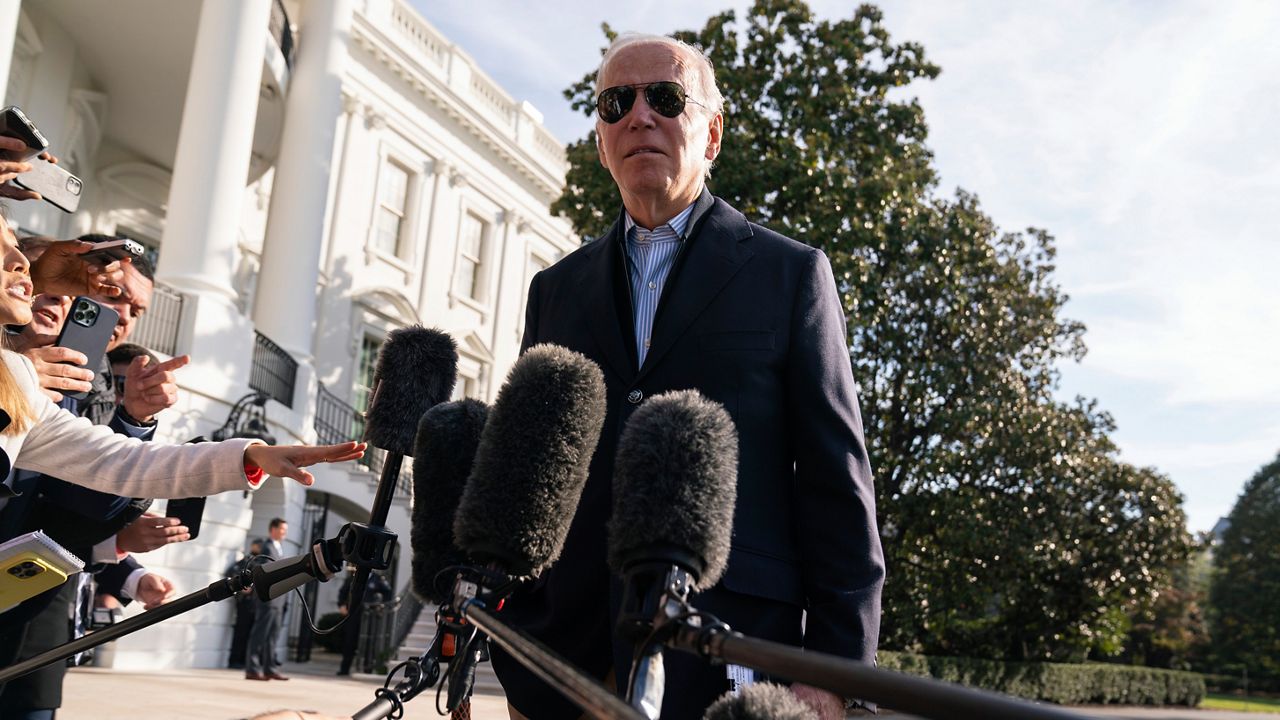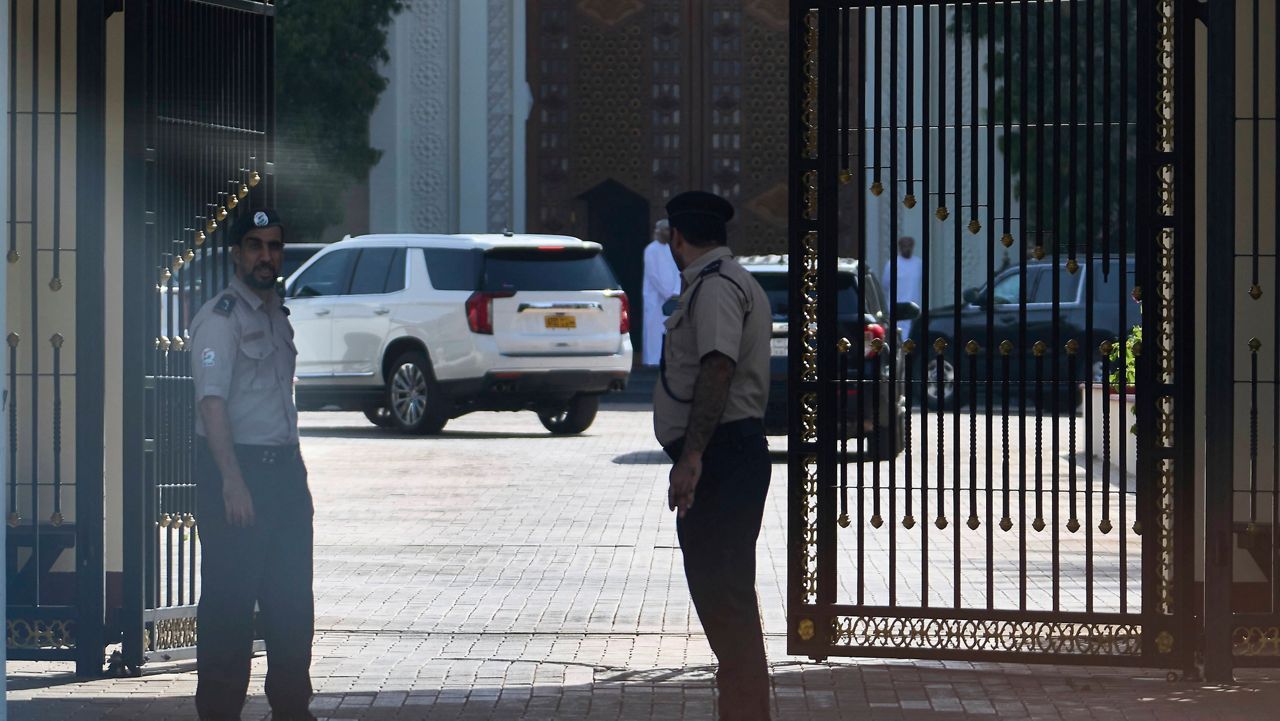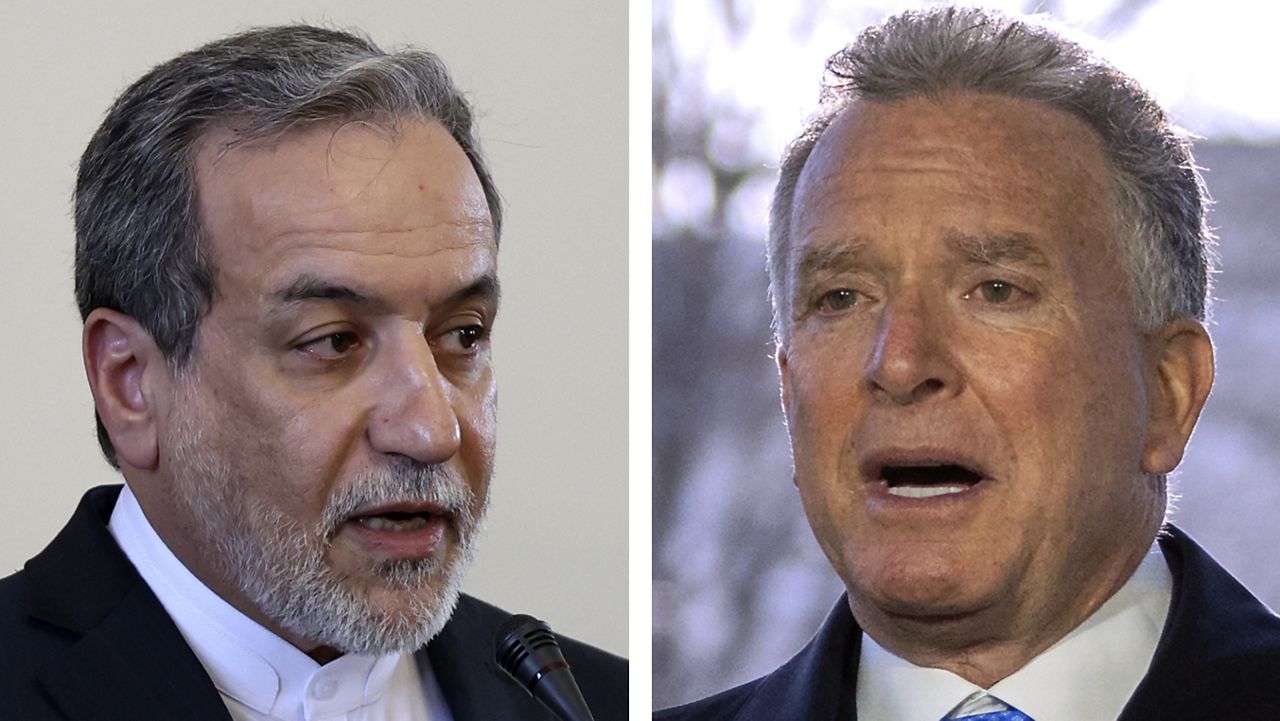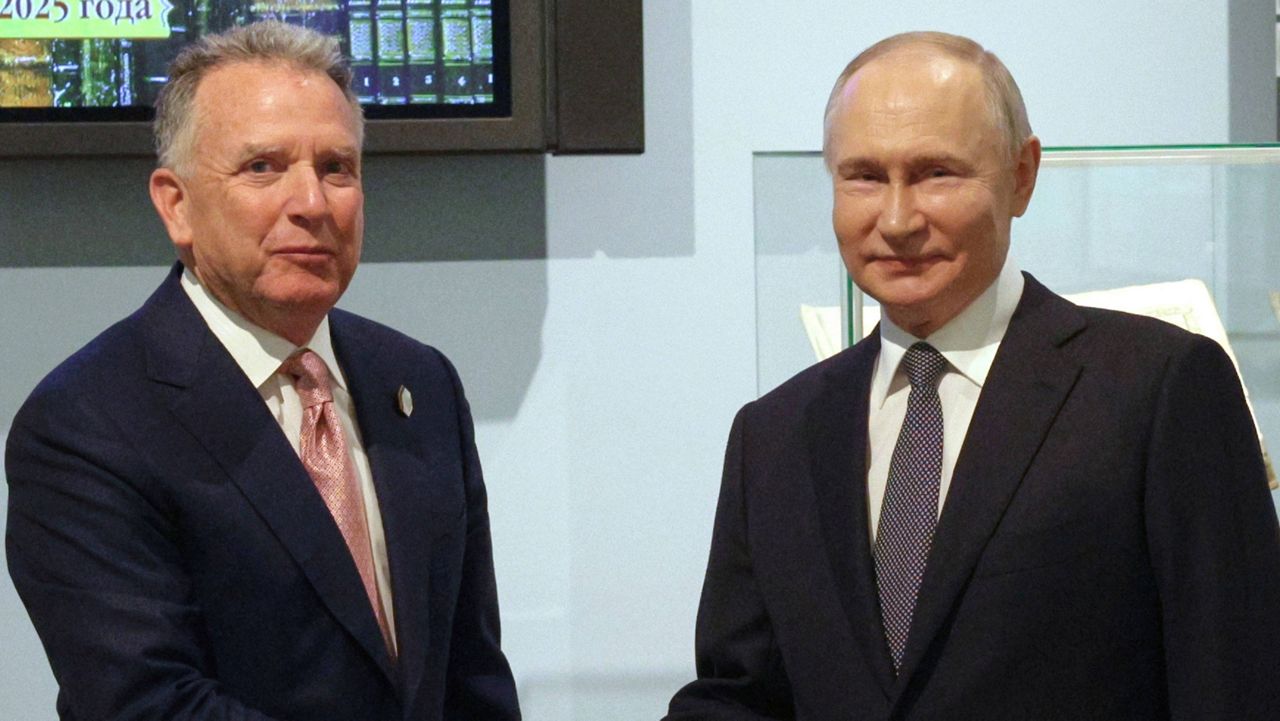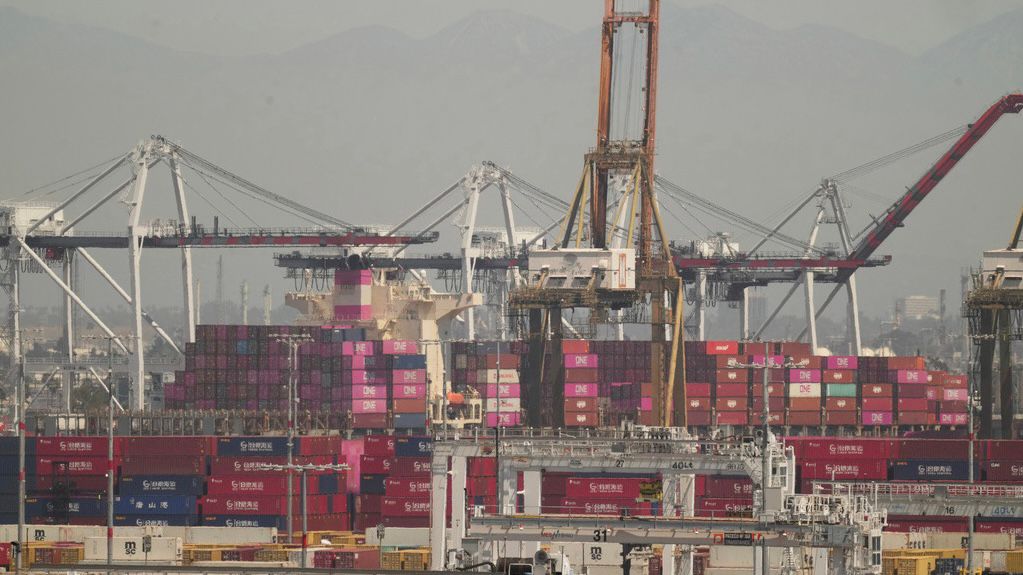President Joe Biden vowed that the United States "will take action" to respond to Saudi Arabia after the country voted to slash oil production.
When asked about members of Congress calling for an end to U.S. arms sales to the country, Biden told reporters that "we’re going to react to Saudi Arabia and we’re doing consultation when [lawmakers] come back. We will take action."
The president's comments come one day after a White House official said that the administration is rethinking the United States’ relationship with Saudi Arabia after the OPEC decision.
What You Need To Know
- The Biden administration is rethinking the United States’ relationship with Saudi Arabia after the Middle Eastern country voted last week to slash global oil production, a White House official said Tuesday
- “I think the president has been very clear that this is a relationship that we need to continue to reevaluate, that we need to be willing to revisit, and certainly in light of the OPEC decision, I think that's where he is,” John Kirby, spokesman for the National Security Council, told CNN.
- The Saudi-led OPEC+ energy alliance’s decided last week to cut oil production by 2 million barrels a day, which will likely increase already high gas prices in the U.S. and elsewhere
- Kirby’s comments come a day after Sen. Bob Menendez, D-N.J., the chairman of the Senate Foreign Relations Committee, issued a statement calling on the U.S. to “immediately freeze all aspects of our cooperation with Saudi Arabia, including any arms sales and security cooperation beyond what is absolutely necessary to defend U.S. personnel and interests.”
“I think the president has been very clear that this is a relationship that we need to continue to reevaluate, that we need to be willing to revisit, and certainly in light of the OPEC decision, I think that's where he is,” John Kirby, spokesman for the National Security Council, told CNN.
The Saudi-led OPEC+ energy alliance’s decided last week to cut oil production by 2 million barrels a day, which will likely increase already high gas prices in the U.S. and elsewhere. The decision was made in an effort to boost oil prices, and it could help blunt the impact on Russia of a looming European oil ban.
Saudi Arabia’s support for the production cut was widely seen as a betrayal of the U.S. after Biden, abandoning his campaign promise to make the country a “pariah” over its human-rights record and the 2018 killing of Washington Post columnist Jamal Khashoggi, visited there in July and urged Crown Prince Mohammed bin Salman to pump more oil to relieve gas prices at home.
In an interview Tuesday, the president pledged that there will be "consequences" for Saudi Arabia's actions, but did not elaborate what actions he might be considering.
“There’s going to be some consequences for what they’ve done, with Russia,” Biden said in an interview with CNN on Tuesday. “I’m not going to get into what I’d consider and what I have in mind. But there will be ... consequences.”
The president said he will take action "when the House and Senate gets back" from recess.
Biden last week called the OPEC+ decision a “disappointment,” and his administration is scrambling to find alternatives to keep gas prices down in the U.S. The options could include dipping further into the nation’s Strategic Petroleum Reserve; pressuring companies, who the White House says is charging more than they typically do above wholesale costs, to lower retail gas prices; and approaching oil-producing Venezuela.
Kirby said Biden is willing to work with Congress “as we think about what the right relationship with Saudi Arabia needs to be going forward.” The National Security Council spokesman added that he believes the president is willing to start having those conversations “right away.”
Kirby’s comments come a day after Sen. Bob Menendez, D-N.J., the chairman of the Senate Foreign Relations Committee, issued a statement calling on the U.S. to “immediately freeze all aspects of our cooperation with Saudi Arabia, including any arms sales and security cooperation beyond what is absolutely necessary to defend U.S. personnel and interests.”
“There simply is no room to play both sides of this conflict [in Ukraine] – either you support the rest of the free world in trying to stop a war criminal from violently wiping an entire country off of the map or you support him [Russian President Vladimir Putin],” Menendez said. “The Kingdom of Saudi Arabia chose the latter in a terrible decision driven by economic self-interest.”
Sen. Dick Durbin, D-Ill., said Tuesday he supports Menendez’s statement.
“I think it's time for us to imagine a foreign policy where we do not count on Saudi Arabia,” Durbin told CNN.
When asked if he thinks Saudi Arabia wants Russia to win the war, Dubin said, “Yes, clearly it does.”
“Let's be very candid about this, it’s [Russian President Vladimir] Putin and Saudi Arabia against the United States,” said Durbin, who called Riyadh an untrustworthy ally.
“This notion that they're going to raise our gasoline prices and we're supposed to look the other way and we can call them good ol’ boys, the heck with that,” the Illinois senator added. “I mean, this is a terrible regime. It is a kingdom in the 21st century that should be out of business.”
Last week, a group of House Democrats announced they are introducing a bill that would mandate the removal of U.S. troops and missile defense systems from Saudi Arabia and the United Arab Emirates in response to the OPEC+ decision.
Durbin cautioned against actions that would come at the United States’ “own expense.”
“We should carefully measure those alliances with Saudi Arabia that are absolutely essential and discard all the rest,” he said.
The House bill would relocate U.S. troops, equipment and defense systems to other areas in the Middle East. Rep. Tom Malinowski, one of the authors of the legislation, said last week that the U.S. would still have a strong presence in the region to ensure national security.
As the United States continues to re-evaluate its relationship with Saudi Arabia, White House press secretary Karine Jean-Pierre on Tuesday said the administration will be "watching closely over the coming weeks – and months as well – consulting with our allies and also with with members of Congress and decisions will be made once that policy review is underway."
Jean-Pierre acknowledged OPEC's decision means Saudi Arabia's leaders "certainly are aligning themselves with Russia and right now this is not a time to be aligning with Russia." The press secretary would not say if the president agreed with Sen. Menendez's call to essentially freeze the sale of all arms to Saudi Arabia.
Republicans, meanwhile, have largely directed their ire over the OPEC+ decision at Biden’s policies.
“President Biden would rather make us dependent on Saudi Arabia and open up oil deals for Venezuela than unleash American energy from Texas,” Sen. Ted Cruz, R-Texas, tweeted last week.
Ryan Chatelain - Digital Media Producer
Ryan Chatelain is a national news digital content producer for Spectrum News and is based in New York City. He has previously covered both news and sports for WFAN Sports Radio, CBS New York, Newsday, amNewYork and The Courier in his home state of Louisiana.




